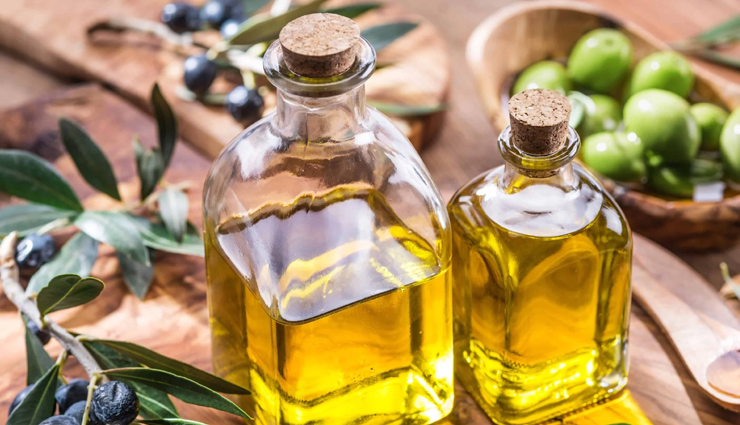- Home›
- Healthy Living›
- 8 Amazing Health Benefits Of Olive Oil
8 Amazing Health Benefits Of Olive Oil
By: Priyanka Maheshwari Tue, 05 Mar 2024 10:36:58

Olive oil, often referred to as "liquid gold," has been cherished for centuries for its culinary, medicinal, and cosmetic properties. Extracted from the fruit of the olive tree (Olea europaea), olive oil is a staple of the Mediterranean diet and a fundamental component of many cuisines around the world. Renowned for its rich flavor, versatility, and numerous health benefits, olive oil holds a special place in both culinary traditions and modern wellness practices.
The history of olive oil dates back thousands of years, with evidence of its production and consumption found in ancient civilizations such as the Greeks, Romans, and Egyptians. It was not only prized as a food source but also revered for its symbolic and religious significance. Olive oil has been used for cooking, lamp fuel, skincare, medicinal purposes, and even in religious ceremonies throughout history, highlighting its multifaceted importance.
One of the distinguishing features of olive oil is its method of extraction. Unlike many other vegetable oils, which are extracted using chemical solvents, olive oil is typically produced through mechanical means, such as pressing or centrifugation. This process helps retain the oil's natural flavor, aroma, and nutritional qualities, resulting in different grades of olive oil, with extra virgin olive oil being the most prized for its superior quality and taste.
Nutritionally, olive oil is primarily composed of monounsaturated fats, particularly oleic acid, along with smaller amounts of saturated and polyunsaturated fats. It also contains antioxidants, such as vitamin E and phenolic compounds, which contribute to its health-promoting properties. The combination of healthy fats and antioxidants makes olive oil a key component of a balanced diet and a cornerstone of the renowned Mediterranean diet, which has been linked to numerous health benefits, including reduced risk of heart disease, cancer, and neurodegenerative conditions.
Beyond its nutritional value, olive oil is valued for its culinary versatility, enhancing the flavor and texture of dishes ranging from salads and marinades to sautés and baked goods. Its distinct varieties, ranging from delicate to robust, offer a spectrum of flavors and aromas that cater to diverse culinary preferences and applications.

# Heart Health
Olive oil is a cornerstone of the Mediterranean diet, which has been linked to reduced risk of heart disease. The monounsaturated fats in olive oil can help lower LDL (bad) cholesterol levels and increase HDL (good) cholesterol levels, improving overall heart health.

# Anti-inflammatory Properties
Olive oil contains antioxidants such as polyphenols, which have potent anti-inflammatory effects. Chronic inflammation is associated with various diseases, including heart disease, cancer, and neurodegenerative conditions. The anti-inflammatory properties of olive oil may help mitigate these risks.
# Antioxidant Benefits
Olive oil is rich in antioxidants, including vitamin E and phenolic compounds, which help combat oxidative stress in the body. Oxidative stress can damage cells and contribute to aging and the development of chronic diseases.

# Cancer Prevention
Some studies suggest that the antioxidants and anti-inflammatory compounds in olive oil may help reduce the risk of certain cancers, particularly breast, colon, and prostate cancers.

# Brain Health
The monounsaturated fats in olive oil may support brain health and cognitive function. Some research suggests that the Mediterranean diet, rich in olive oil, is associated with a reduced risk of cognitive decline and neurodegenerative diseases such as Alzheimer's.

# Weight Management
Despite being calorie-dense, olive oil can be beneficial for weight management when consumed in moderation. The healthy fats in olive oil can help increase feelings of satiety and promote weight loss when used as a replacement for less healthy fats and oils.

# Digestive Health
Olive oil has been shown to have mild laxative effects and may help alleviate constipation. Additionally, it may support the health of the digestive tract by reducing inflammation and promoting the growth of beneficial gut bacteria.

# Skin Health
Olive oil is a common ingredient in skincare products due to its moisturizing and antioxidant properties. When consumed regularly, it may help maintain skin health from the inside out, reducing the risk of skin aging and improving overall complexion.





